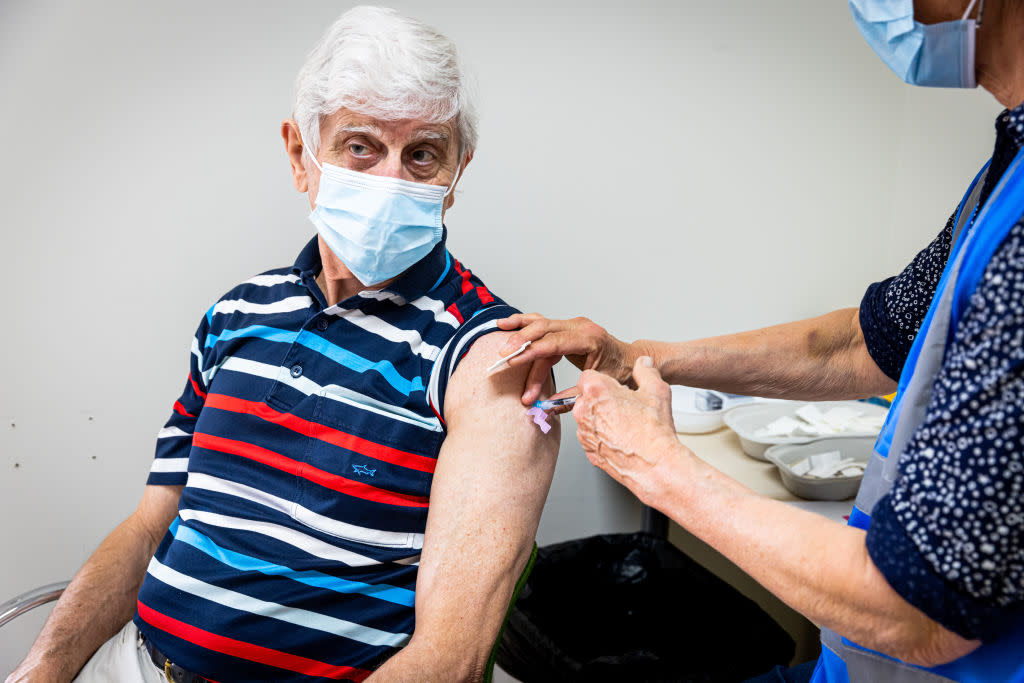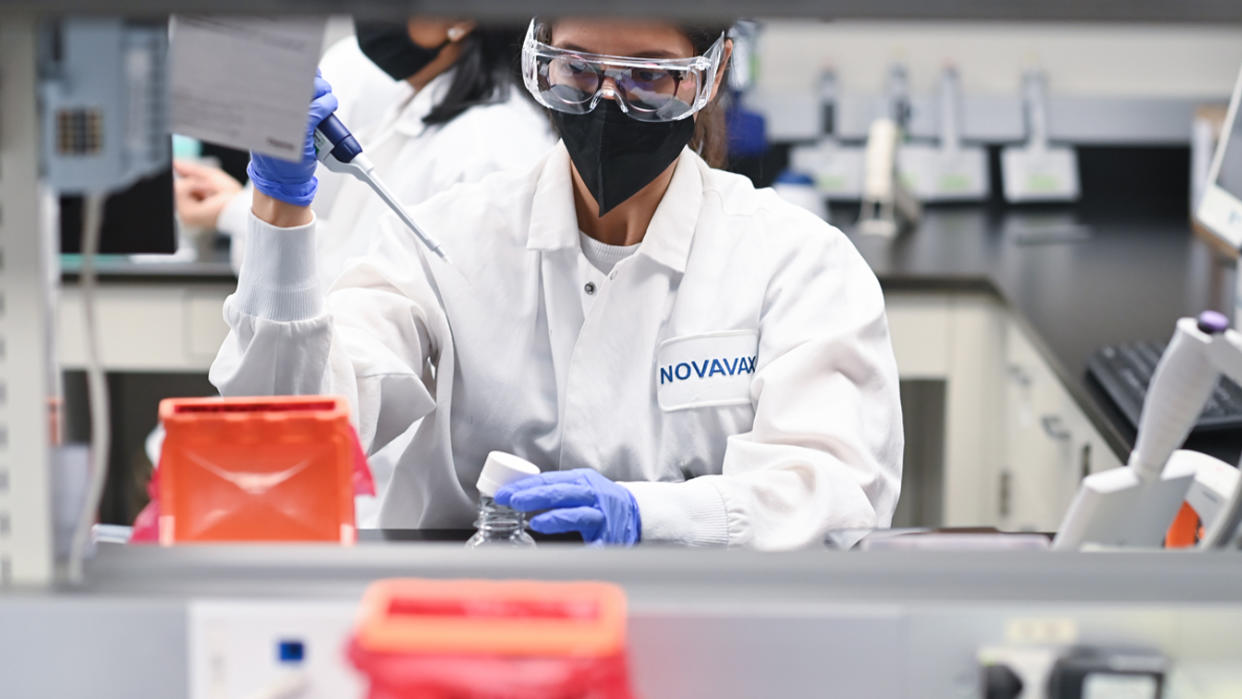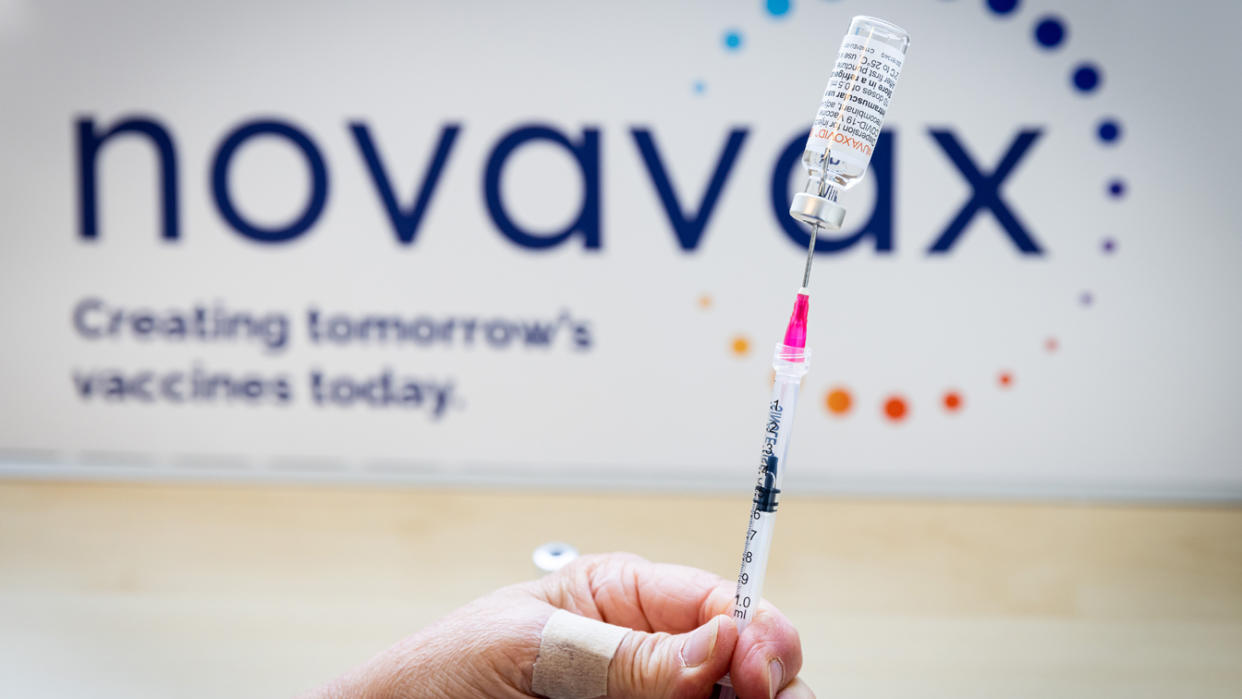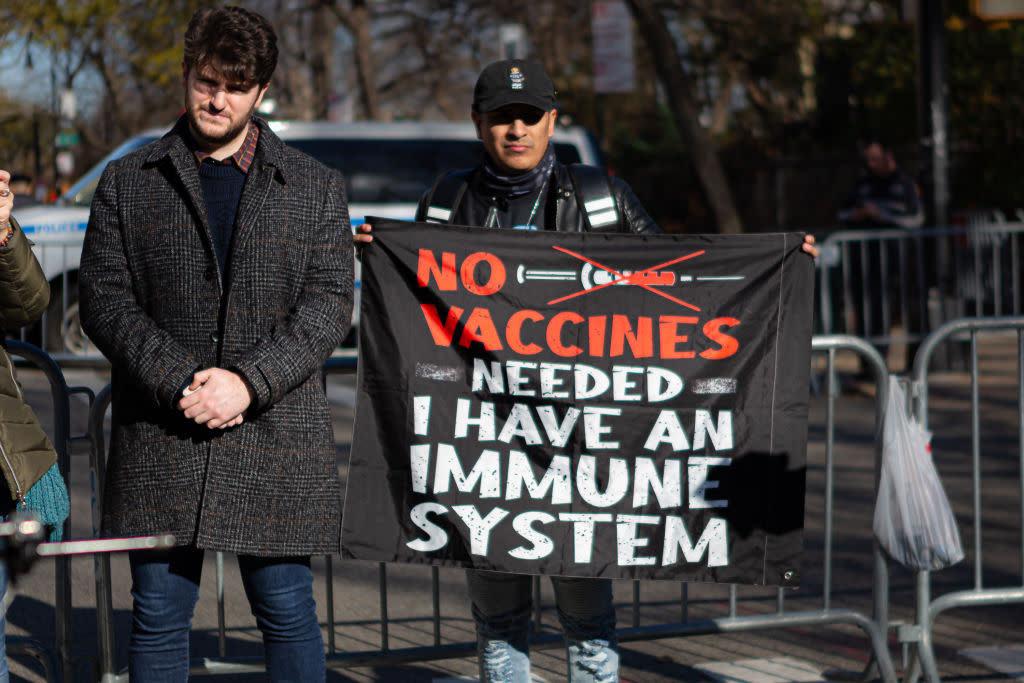CDC panel endorses new Novavax COVID vaccine
Advisers to the Centers for Disease Control and Prevention voted Tuesday to endorse emergency authorization of a new COVID-19 vaccine developed by the Maryland biotechnology company Novavax, making it the fourth immunization to clear that hurdle in the U.S. — and the first to rely on the same familiar technology as some seasonal flu shots.
An advisory panel to the Food and Drug Administration previously recommended making two doses of Novavax available to Americans 18 and older for their initial inoculation, and CDC Director Rochelle Walensky is expected to sign off on the new vaccine later this week — after which the Biden administration’s recently announced order of 3.2 million Novavax shots will soon become available to the estimated 27 million U.S. adults who remain unvaccinated.
With clinical trials underway, Novavax also said it hopes to have an updated shot targeting the highly contagious Omicron variant of the virus available in the fourth quarter of 2022, raising the possibility that a much larger group of “fully vaccinated” Americans — the vast majority of whom have already received at least two doses of an mRNA vaccine by Pfizer or Moderna — may someday have the option of boosting with Novavax.
How effective is the new vaccine?

After reviewing the two-dose Novavax vaccine’s safety and efficacy data, the FDA’s panel of experts approved it last month for emergency use in adults ages 18 and older, recommending that doses be spaced three weeks apart.
In clinical trials conducted before Omicron hit the U.S., the Novavax vaccine was found to be 90% effective at preventing mild, moderate and severe COVID-19. According to FDA briefing documents, the most common side effects include injection site pain, fatigue, headache and muscle pain.
Some of the FDA experts, however, raised concerns that the vaccine may lead to myocarditis, an inflammation of the heart muscle that has been observed in some patients, particularly young men, who have received COVID-19 vaccines. During the Novavax vaccine trials, among nearly 30,000 vaccine recipients, just four cases of myocarditis were observed.
“We believe that the totality of the clinical evidence here is not enough to establish an overall causal relationship with the vaccine,” Novavax chief safety officer Denny Kim told the FDA committee, adding that the company is closely monitoring such cases of myocarditis and gathering more data from its clinical trials as well as the real-world use of its vaccine. According to the Washington Post, the vaccine has already been authorized in more than 40 countries.
Does the Novavax vaccine protect against new coronavirus variants?

Another concern that was brought up by some members of the FDA committee is that the Novavax vaccine was designed to target the original strain of the coronavirus, and there is currently little data available on how it does against Omicron and its subvariants, which are now spreading quickly across the U.S.
“One challenge is that the trial occurred before the more transmissible Delta and Omicron variants, so it is probably safe to assume that the effectiveness is somewhat lower given the high contagiousness of these current variants,” Dr. Lucy McBride, a Yahoo News medical contributor, said following the FDA decision.
Novavax chief medical officer Filip Dubovsky admitted that the company doesn’t yet have efficacy data against Omicron or other recent mutations, but he said its vaccine is likely to protect against the new variants as well. “It’s factual that we don’t have efficacy data against Omicron. What we do have is a technology that we think generates a broad immune response, demonstrated against a broad array of variants,” Dubovsky said.
A study published in preprint form shortly before Tuesday’s CDC meeting found that three doses of Novavax induced neutralizing antibodies against both the original strain of Omicron (BA.1) and its even more transmissible subvariants (BA.4 and BA.5) as well as three mRNA shots.
McBride said the new vaccine will be an important tool to continue to fight the virus. “It’s important to remember that any vaccine is better than no vaccine, particularly when it comes to high-risk individuals,” she told Yahoo News.
Even though at the moment Novavax sought only emergency authorization for the primary series of its vaccine, the company has said it plans to seek expanded authorization in the future for use of the shot in adolescents and as a booster.

How is the Novavax vaccine different from other COVID vaccines?
The Novavax vaccine uses an older and more conventional technology called recombinant protein, which has been used in other vaccines targeting influenza, shingles, human papillomavirus (HPV) and hepatitis B.
The mRNA vaccines, such as those manufactured by Pfizer and Moderna, rely on messenger RNA to instruct human cells to produce copies of the COVID-19’s spike protein, which is the part of the virus that helps it attach to cells.
The Novavax vaccine technology, on the other hand, produces copies of the virus’s spike protein outside the human body. These lab-made spike copies, which can’t replicate or cause COVID, are then inserted into the body in a nanoparticle made of a lipid. The body then produces an immune response that helps protect against the virus. In addition, the Novavax vaccine uses an ingredient called an adjuvant, which helps generate a broader immune response against the virus.
Following the FDA committee vote in June, some members said the new vaccine offered a valuable means to determine how the different COVID-19 inoculations compared over the long term.
“I see this as an opportunity to widely vaccinate people with a protein vaccine and to compare it with mRNA vaccines, which are relatively new technology,” Dr. Jay Portnoy, a committee member, said. “The vaccine deserves an opportunity to be given and studied and used by individuals who wish to use this vaccine.”

Will Novavax convince some unvaccinated Americans to roll up their sleeves?
Possibly — but the change is likely to be insignificant.
In May, unvaccinated Americans were still 3.5 times more likely to be hospitalized with COVID than their vaccinated peers, according to CDC data presented Tuesday — and nine times more likely to die of the disease. They also tend to be poorer and more rural than vaccinated Americans.
Unvaccinated Americans regularly tell pollsters that one reason they have not gotten vaccinated is that they are suspicious of mRNA vaccines (even though both Moderna and Pfizer have proved to be some of the safest inoculations ever, with billions of doses administered worldwide).
On Tuesday, representatives from Novavax said their more traditional technology would help expand the U.S. vaccination effort by eliminating those concerns.
But according to a Morning Consult poll, just 28% of unvaccinated U.S. adults said they viewed protein-based shots like Novavax as safe — more than the 17% who said the same about mRNA vaccines, but hardly a groundswell.
A full 77% of unvaccinated Americans still said they wouldn’t get a protein-based COVID shot if it were authorized in the U.S. Only 10% said they “probably” or “definitely” would.


